
|
Gang Chen, Ph.D., P.E. |
|
Professor |
|
Water Trench Project |
|
Usage of Water-Filled Trench in Improving Groundwater Quality |
|
Sponsored by the Hinkley Center for Solid and Hazardous Waste Management. Duration: September, 2008 to August, 2009. |
|
Objective: This research will explore the possibility of the usage of water-filled trenches in removing the organic and inorganic contaminants from groundwater. During water-filled trench processes, the contaminants may be removed by one or more mechanisms, with certain mechanisms dominating over the others. This research will investigate whether, and if it is yes, to what extent, water-filled trenches can be utilized in groundwater decontamination in Florida. We will design the experimental devices, conduct laboratory experiments, and make recommendations for water-filled trench field applications.
Methodology: Custom-made experimental setups of a water-filled trench and a water-filled trench with an aerobic filter will be tested for the treatment of simulated groundwater that contains organic contaminants and heavy metals. The mechanisms of organic compound decomposition, volatile organic compound vaporization, and heavy metal transformation and precipitation will be investigated in this research. The effect of dissolved oxygen and alkalinity on groundwater decontamination will also be explored. Throughout the course of the experiments, pH, redox potential and microbial activities will be closely monitored and the contaminant removal rate will be reported. For water-filled trench with an aerobic filter, lime stone and mulch will be tested to serve as the filter materials. The enhancement of organic contaminant and heavy metal removal through the usage of these filter materials will be quantified.
Rationale: In Florida, groundwater is vulnerable to different kinds of contamination, in part because of the shallow depth to groundwater in most Florida regions. Organic compounds and heavy metals are the most common contaminants present in the groundwater. Water-filled trenches can clean up groundwater by means of biological degradation of organic contaminants, volatilization of volatile organic compounds, and chemical or biological oxidation and precipitation of heavy metals. In situ, passive approaches of water-filled trenches that aim to accelerate the rate of decontamination of groundwater represent a sensible alternative for groundwater remediation. |
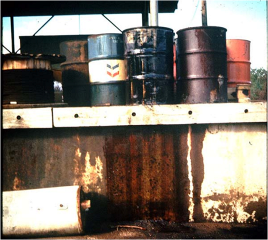
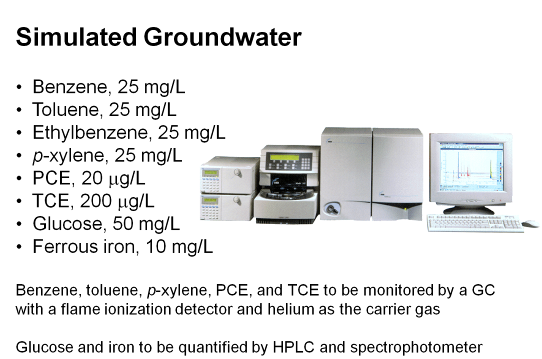
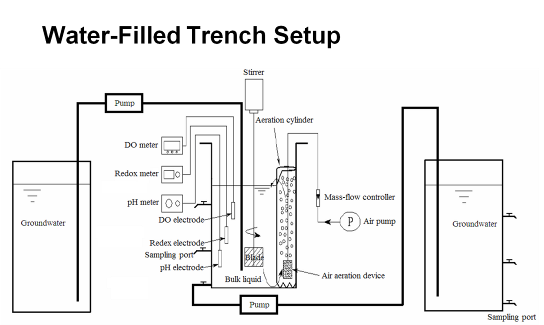
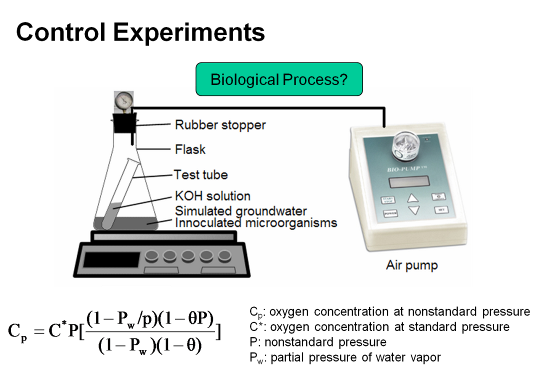
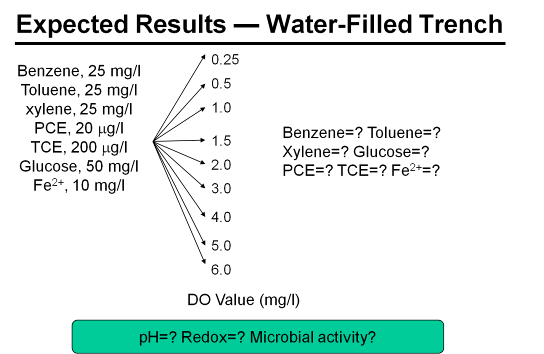
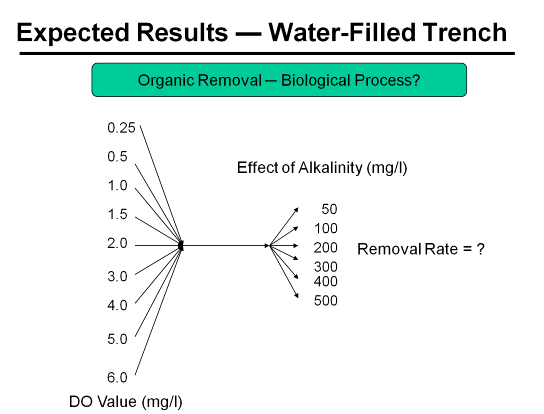
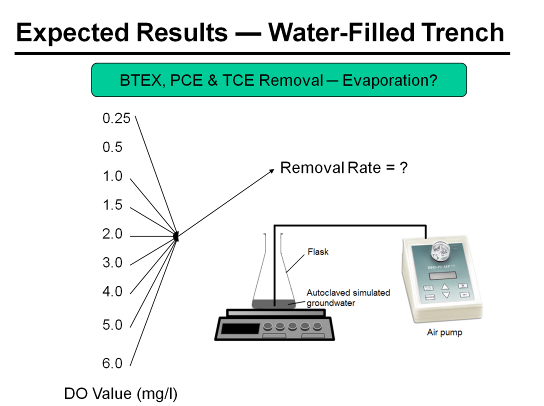
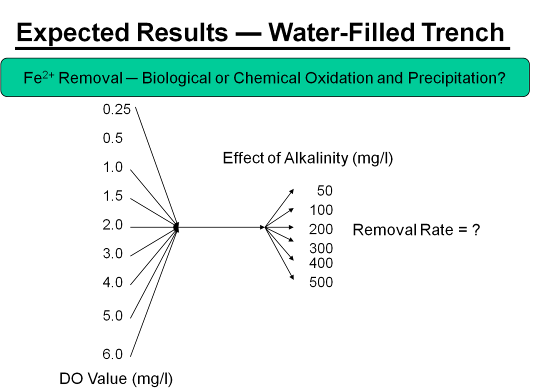
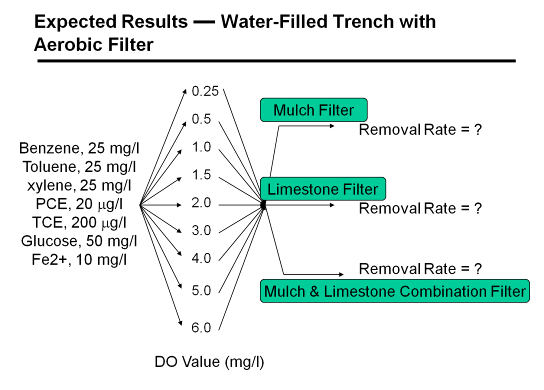

|
|